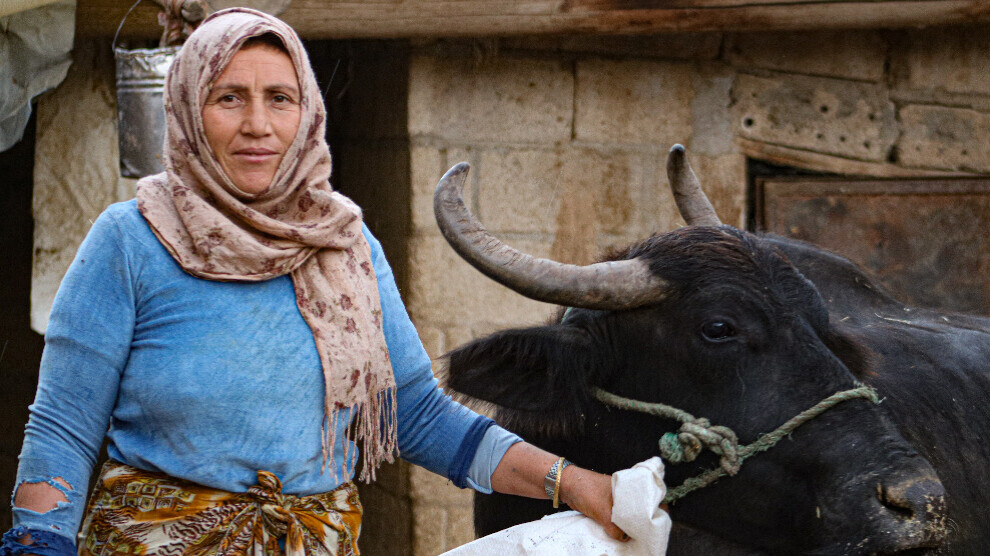Policy of Turkish state towards NE Syria affects animal husbandry
Besma Hamadî,has been working as a buffalo farmer in Cizîr for 20 years. “There is a decrease in animal husbandry due to the policy of the Turkish state towards NE Syria,” she said.

EBÎR MUHAMED
Qamishlo- Water buffalo farming is an important resource for farmers' livelihoods in North and East Syria. The Tayy, an Arab tribe in North and East Syria, is one of the tribes that have been water buffalo farmers for decades. Besma Hamadî, (35), member of this tribe, has been working as a buffalo and cow farmer in Qamishlo for 20 years. Indicating that they are famous in the Cizîr Region for buffalo farming, she said, “We have been working as buffalo farmers for years. In our tribe, animal husbandry is passed down from generation to generation. Buffalo milk is healthier than cow’s milk. We make a living from buffalo farming.”
Economic crisis affects animal husbandry
In recent years, there has been a significant decrease in the number of buffalos in the region. Farmers, who used to have 100 buffalos, now have only 50. One of the reasons for the decrease is that the Syrian pound has lost its value against the dollar, causing an increase in fuel prices. Another reason is that the Turkish state has been cutting off the water of the Jaghjagh river.
Besma Hamadî, who wakes up early in the morning to milk her buffalos, said, “There is not enough water for our buffalos because the Turkish state has been cutting off the water of the river. We have to take our buffalos to Raqqa. We see buffalo farming as not only a resource of livelihoods but also a tradition. Despite everything, we will preserve this tradition.”
